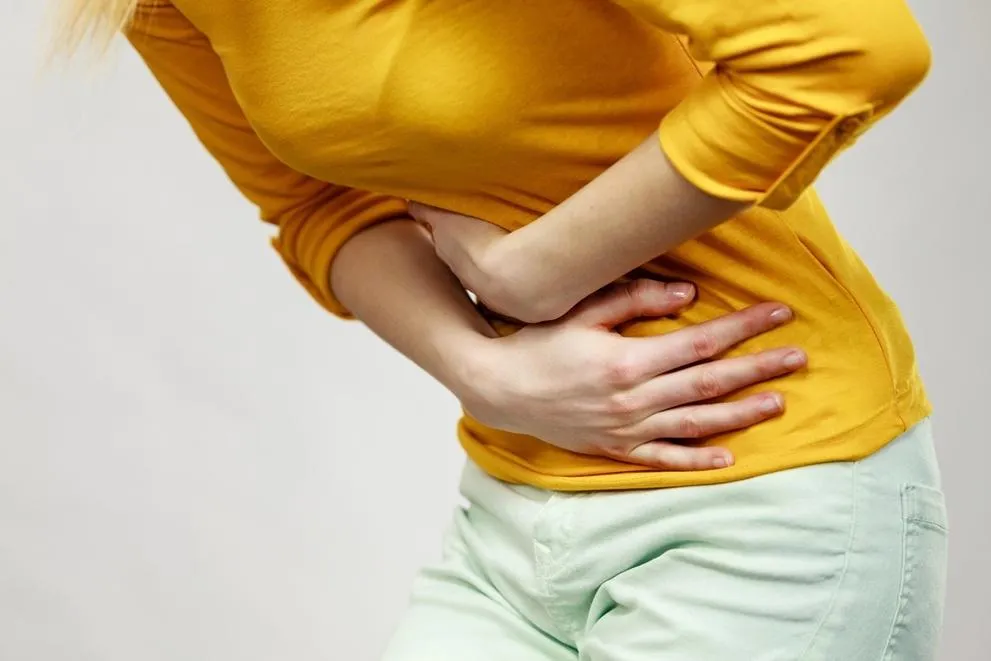
Differences Between Heartburn and Indigestion
Heartburn and indigestion are often talked about as if they’re the same thing. They’re not. Heartburn is the burning feeling behind your breastbone when acid escapes from the stomach. Indigestion (or dyspepsia), in contrast, is a broader discomfort in the upper stomach after eating.
Both heartburn and indigestion are upper gastrointestinal (GI) complaints. However, while indigestion is usually mild, persistent heartburn can be the sign of gastro-oesophageal reflux disease (GERD). Understanding the cause of heartburn and indigestion will help you know what’s really going on and how best to treat it.
The Differences Between Heartburn and Indigestion
Symptoms of Heartburn vs. Indigestion
The most obvious difference between heartburn and indigestion is the symptoms. While the two conditions might sound similar, the nature of the pain is very different.
Indigestion primarily affects the abdominal region. Heartburn, on the other hand, is felt in the upper chest (often directly behind the breastbone) due to the acid irritation. However, you can experience indigestion and heartburn at the same time.
Water Brash Final
Causes of Heartburn vs. Indigestion
The symptoms of heartburn and indigestion are telltale signs of each condition. However, these symptoms reflect very different underlying causes (although there is some overlap).
Heartburn
The term “heartburn” is used exclusively for the pain associated with acid reflux. Usually, the acid stays in your stomach. But if there is a weak or relaxed lower oesophageal sphincter it can backflow, causing irritation and pain. If this acid reflux is persistent, it’s known as GERD.
Heartburn is extremely common. It’s estimated that 8.8-25.9% of people in Europe have GERD (not just acid reflux).
Some of the main risk factors include:
Large or fatty meals
Lying down soon after eating
Overweight/obesity
Pregnancy
Smoking
Alcohol, coffee, fizzy drinks
Spicy or acidic foods
Certain medications
Hiatus hernia
Indigestion
Indigestion, or dyspepsia, isn’t a specific symptom. It’s a general discomfort or pain in the upper stomach that usually occurs during or after eating. It isn’t a single disease, but a cluster of symptoms that can include:
Upper abdominal pain or burning
Feeling full quickly while eating
Uncomfortable fullness or bloating after meals
Nausea, belching, or mild vomiting
Unlike heartburn, indigestion isn’t about the backflow of acid but how your stomach handles food. In most cases, indigestion is caused by eating too much or too fast. Certain foods can also increase the risk of indigestion, such as fatty foods, caffeine, and carbonated and alcoholic drinks. Other triggers include smoking, stress, and swallowing air (aerophagia).
In rare cases, indigestion is the sign of an underlying condition. Persistent dyspepsia can be linked to stomach cancer, IBS, lactose intolerance, gallbladder disease, peptic ulcers, and more.
Connection Between Heartburn and Indigestion
There’s a reason heartburn and indigestion are commonly confused. The two conditions often occur together and share several triggers (including large or fatty meals, alcohol, and stress).
In fact, indigestion is sometimes caused by GERD, as the reflux irritates the stomach lining. That’s why people report a mix of symptoms: burning in the chest alongside bloating, belching, or nausea.
In fact, indigestion is sometimes caused by GERD, as the reflux irritates the stomach lining. That’s why people report a mix of symptoms: burning in the chest alongside bloating, belching, or nausea, as well as a sudden taste of sour fluid in the mouth, known as Water brash.
It’s essential to distinguish between these symptoms to understand what’s happening.
Preventing Heartburn and Indigestion
Whether you’re struggling with heartburn, indigestion, or both, you can relieve your symptoms with some simple tips:
Eat smaller meals
Lose weight (if you’re overweight or obese)
Minimise trigger foods, e.g. fatty foods, alcohol, coffee, spicy foods
Limit your food intake 2-4 hours before bed
Focus on a diet rich in whole foods, e.g. fruits, vegetables, whole grains, lean meats
Quit smoking
Raise your head when sleeping
Take an antacid during an acid attack
Find some ways to manage stress, e.g. yoga, breathing exercises, walks
If your symptoms persist, consult your doctor. If you experience any blood in your stool, unintentional weight loss, yellowing of the skin or eyes, swallowing problems (dysphagia), frequent vomiting, or blood in vomit, then seek urgent medical advice.
Get Relief from Heartburn and Indigestion
You don’t have to put up with constant burning or stomach discomfort. If heartburn or indigestion keeps coming back, it could be a sign of an underlying issue. The Functional Gut Clinic specialises in diagnosing and treating gastrointestinal symptoms, helping you move beyond guesswork and find lasting relief.

